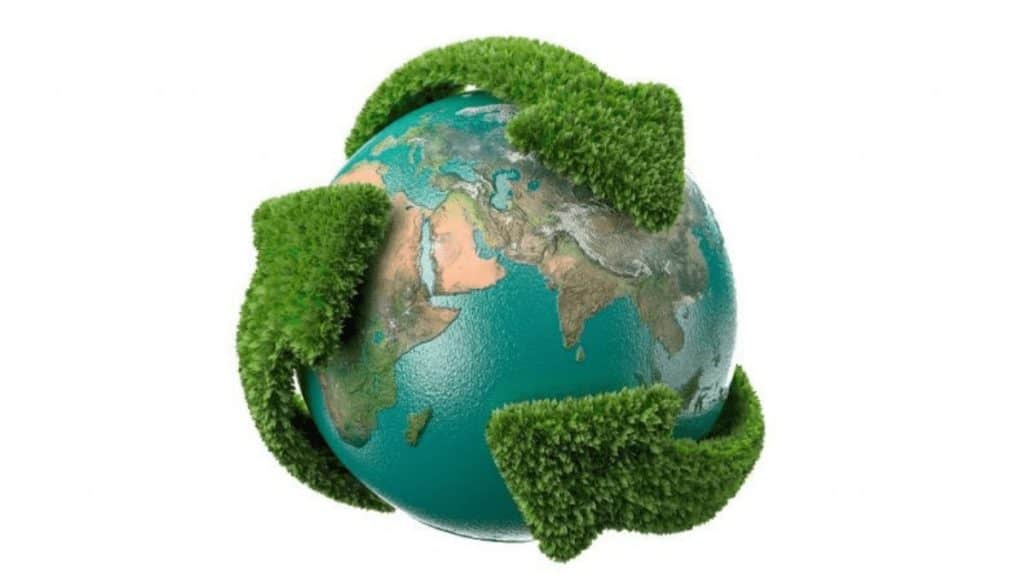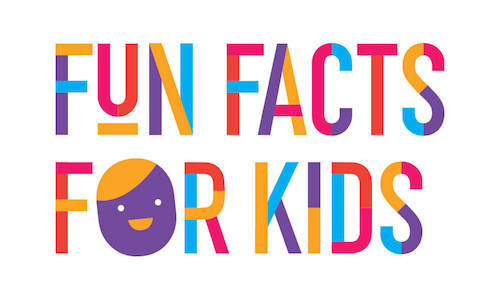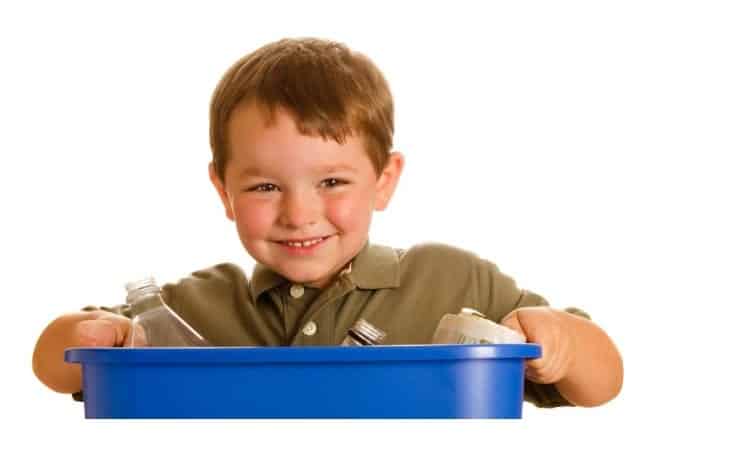If you are looking for recycling facts for kids including ideas that kids can do at home to help, we’ve got a great list of ideas right here.
Recycling hint and tips – this article will give you a good list of recycling facts for kids.
What a waste: Recycling facts for kids
Australians produce around 64 million tonnes of rubbish every single year. That’s around 59 636 garbage trucks full of rubbish or 1 724 kilograms of rubbish for every single person in Australia. That’s a lot of rubbish.
Teaching recycling facts for kids at home and in their schools will help to encourage better recycling habits, creating a healthier planet and environment for everyone to enjoy.
Why is recycling for kids important?
Australians are some of the highest producers of rubbish in the world and half of this rubbish goes to landfill rather than being recycled. Every single bit of rubbish that we throw out requires resources such as coal, trees and oil to produce. Planet Earth only has a certain amount of oil and coal so we need to be careful with the amount that is used so that we don’t run out.
When this rubbish goes to landfill rather than being recycled it means that that these resources are lost and new resources must be taken from the earth and environment to produce more. When we recycle it means that these resources are not lost and can be reused, helping to protect our environment. Recycling means turning waste materials into brand new products.
Check out these great recycling stickers for kids!
What is recycling and what can be recycled?
Knowing what can be recycled is one of the most important recycling facts for kids to learn and understand. Participating in your local Council kerbside recycling program is the first step in encouraging good recycling habits for kids. Individual Councils in Australia vary with what they collect and recycle but most will collect and recycle the following:
Recycling plastics:
All plastics will contain a number within a triangle of 3 chasing arrows. Plastics numbered 1 through to 7 can be recycled by most Councils in Australia. These plastics include: milk, water and juice bottles; ice-cream and yoghurt containers.
Recycling paper and cardboard:
Newspapers, magazines, envelopes, milk and juice cartons, cereal and other food boxes.
Recycling aluminum:
Aluminum drink cans, aluminum foil and pie trays, empty aerosol cans and empty steel cans.
Recycling glass:
Empty glass bottles, jars and containers.
Recycling organic waste:
Many Councils now collect green waste such as lawn clippings, plant cuttings and household food scraps which are turned into fertilisers and mulches for gardening and farming. You can find out about the Brisbane City Council’s green waste program here.
Other ways to recycle at home
Other household items that can be recycled include:
- Returning plastic bags to supermarkets
- Batteries
- Mobile phones
- Printer cartridges
- Computers, televisions and computer accessories
- Clothes
- Worm farms. It’s a fact that most kids love icky things like worms, so making them part of your recycling at home is a great way to get kids involved and excited about recycling. Many councils will provide free worm farms and courses on how to set them up and care for them. Worm farms recycle most kitchen waste.
We love these books about recycling to help kids learn more – click here!
Refuse items instead of recycling them
- Put a “No Junk Mail” sticker on your letterbox and you’ll reduce the amount of paper that goes to waste each year
- Stop buying plastic water bottles. Take your own refillable plastic bottle and go back to the tap
- Don’t bring anymore plastic #3, vinyl or PVC into to your life
- Refuse plastic bags
Reduce what you use in your day to day life
- Buy vintage everything. From electronics to furniture to fashion, vintage is the most eco-friendly choice you can make.
- Use a ballpoint pen that takes refills, or a fountain pen with a refillable cartridge.
- Use a drink bottle that you can fill up each time instead of buying new plastics ones
- Repair clothing, appliances and toys, rather than buy new ones.
Reuse your things instead of buying new ones

- Reuse small plastic bags for small purchases.
- Have a garage sale instead of dumping items at the tip.
- Use your green waste – Invest in a worm farm or a compost bin and turn your food and green waste into something glorious. Well, perhaps ‘glorious’ is taking it a bit too far the mulch you create will have a glorious effect on your garden.
Fun recycling facts for kids in Australia
These fun recycling facts will impress kids and teachers at school, family and friends with your recycling knowledge.
- The energy saved by recycling one plastic bottle will power your computer for 25minutes.
- Recycling one aluminum can saves enough power to run your TV for 3 hours.
- The average family home uses 6 trees worth of paper every year.
- An adult fleece jacket is made from 25 two litre plastic bottles.
- A one litre milk carton can be recycled into 5 pieces of paper.
- Recycling glass saves 75% of the energy need to create new glass from raw materials.
- You can run a 100 watt light bulb for 4 hours with the energy saved by recycling one glass bottle.
Teaching fun recycling facts to kids can help to protect their future environment and keep Australia green and beautiful for future generations to enjoy.
Other facts for kids projects
If you are looking for more great facts for kids to help with projects, check out our other articles about science:

